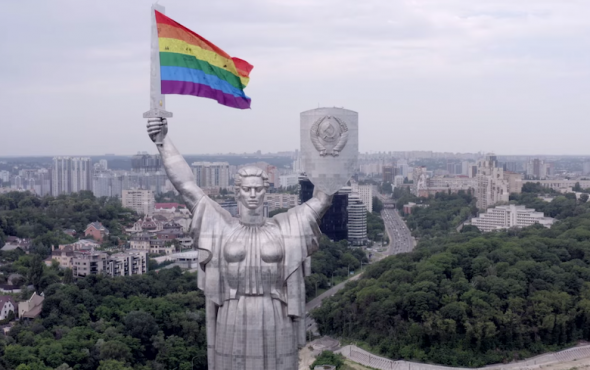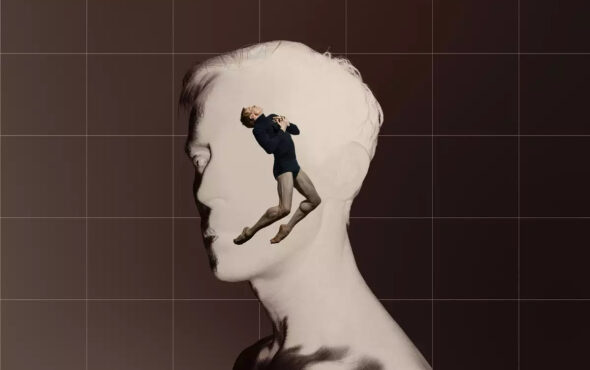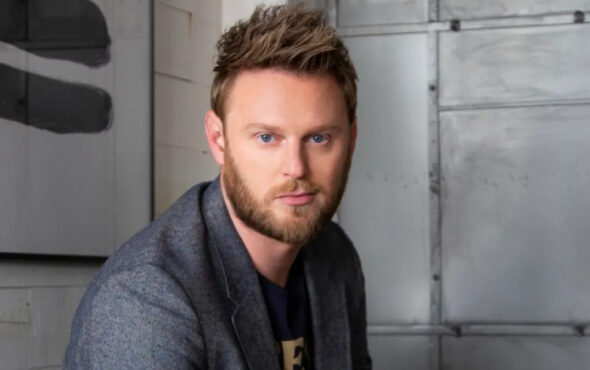
LGBTQ+ activists in Ukraine have used a drone to place a giant rainbow Pride flag on the Motherland Monument.
The treasured statue, which is a part of the National Museum of the History of Ukraine in the Second World War, is located in Kiev, the capital of Ukraine, and stands at 102m (335 ft) – taller than the Statue of Liberty.
The incredible stunt was organised by Kiev Pride, whose annual celebrations, like many other countries around the world, were cancelled this year due growing concerns over the global coronavirus pandemic.
Footage of the drone placing the flag on the Motherland was posting on Sunday (21 June) to Facebook, where Ukrainian citizens slammed the organisers for “losing your sanity” and “living sinful and shameful deeds”.
One user compared the stunt to Hitler, saying it evokes the “same destructive and degenerative ideology”.
Dronarium Ukraine, Kiev Pride’s drone company, said the flight was “carried out under the current legislation and according to the rules of the State Service,” and that their team is “absolutely tolerant”.
“We are against the manifestation of aggression against the LGBT community, we consider it the Middle Ages,” they wrote.
LGBTQ+ rights in Ukraine have progressed in recent years. In 2015, the Ukrainian Parliament made it illegal for employers to discriminate workers based on their sexuality, and one year later, donating blood was approved for gay and bisexual men.
However, queer people still face challenges that aren’t experienced by non-LGBTQ+ residents.
Although same-sex activity has been legal in the country since 1991, LGBTQ+ people can’t adopt or get married, and can still be discriminated against for their sexuality in other areas such as goods and services.
Conversion therapy for minors is also legal and being trans is classified as a mental illness.
However, last year’s Pride event welcomed over 8,000 people in Kiev – including politicians, foreign diplomats and British ambassador, Judith Gough – making it the biggest turnout the Ukrainian capital has ever seen.
Although there were hundreds of far-right protestors, it was called the country’s “most peaceful” Pride event to date.



